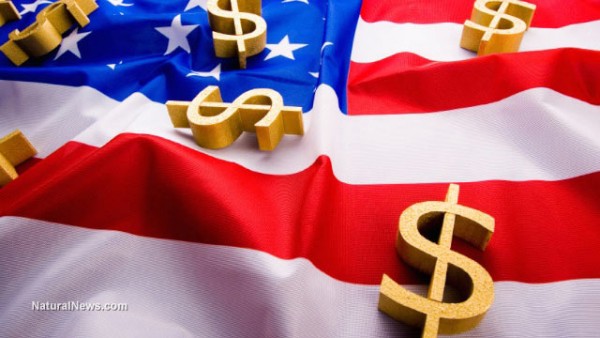Justice served: Drug maker must pay $100M for hiking price of baby medicine by 85,000%
02/03/2017 / By Vicki Batts

Just when you think Big Pharma couldn’t possibly get any more ruthless and corrupt, another pharmaceutical company manages to prove you wrong. In an appalling case of extreme price gouging, Mallinckrodt Pharmaceuticals has been called out for drastically raising the price of a life-saving medication for babies by a jaw-dropping 85,000 percent.
H.P. Acthar gel, the drug in question, is used to treat infantile spasms — which is life-threatening form of epilepsy that is seen in infancy and early childhood. The rare disorder affects approximately 2,000 American children annually. Acthar has been used in the treatment of infantile spasms for more than 50 years; the gel, however, is a more recent development in terms of drug administration.
At one point in time, a vial of Acthar gel sold for a mere $40. Now, however, the very same dose costs a staggering (and inexplicable) $34,000.
Mallinckrodt faces lawsuit for their misdeeds
The Federal Trade Commission and the Attorney Generals from five different states filed suit against Mallinckrodt, alleging that a company it acquired in 2014 participated in anti-competitive practices to maintain its monopoly on the life-saving medication. In early 2017, Mallinckrodt has agreed to pay out a $100 million to settle the suit.
Questcor initially aqcuired Acthar in 2001 for $100,000 plus royalties. Questcor then increased the price of the drug to over $34,000 per vial. The company was then acquired by Mallinckrodt in 2014. In 2015, the orphan drug brought in more than a billion dollars in revenue for Mallinckrodt. Understandably, this enormous profit margin launched complaints.
Get CLEAN FOOD and help support our mission to keep you informed: The Health Ranger Store lab verifies everything we sell with accredited testing for heavy metals, microbiology and food safety. Certified organic facility, ISO-accredited on-site laboratory, no GMOs or synthetic ingredients. The world's #1 source of lab-verified clean foods and superfoods for nutritional healing. 600+ products available. Explore now.
According to a regulatory filing by the company, H.P. Acthar gel is currently subject to “limited direct competition.” In 2010, when the FDA gave the drug its “orphan designation,” the federal agency also granted it a seven-year exclusivity period. During that time, the FDA is not allowed to approve any other adrenocorticotropic hormone (ACTH) formulations for infantile spasms, unless they are clinically proven to be superior to Acthar gel.
According to the FDA, orphan drug designations are given to medications intended to treat fewer than 200,000 people in the US — or for drugs intended to treat more than 200,000 people but the manufacturers are not expected to recover their costs for developing, producing and marketing a drug. [RELATED: Keep up with the newest polices and controversies at FDA.news]
While the intention behind this is to encourage manufacturers to make medications for rare conditions, problems begin to arise when this special status is abused. Corrupt practices like price gouging while under this designation that basically grants pharma companies a 7-year monopoly are nothing new. Truly, it is no surprise that during those seven years, a company would do its best to squeeze every penny it can out of the product.
Naturally, pharma giant Mallinckrodt continues to deny any wrongdoing. According to The Washington Post, “The proposed court order announcing the settlement states that it ‘does not constitute . . . any admission of liability or wrongdoing’ by Mallinckrodt.”
A statement from the company’s website reads, “We continue to strongly disagree with allegations outlined in the FTC’s complaint, believing that key claims are unsupported and even contradicted by scientific data and market facts, and appear to be inconsistent with the views of the FDA.”
What kind of scientific data do you need to prove that a price jump of $40 to $34,000 is well beyond justifiable? Fortunately, no one seems to be swayed by the company’s plea of innocence.
In a statement, Edith Ramirez, chairwoman of the Federal Trade Commission, declared, “Questcor took advantage of its monopoly to repeatedly raise the price of Acthar. We charge that, to maintain its monopoly pricing, it acquired the rights to its greatest competitive threat, a synthetic version of Acthar, to forestall future competition.”
In other words, in addition to gouging the price of Acthar, Questcor also illegally acquired the rights to a competing drug — stifling competition and protecting their own monopoly.
At least part of the settlement will also require Mallinckrodt to license Synacthen to a competitor approved by the FTC. Unfortunately, monopolies in the pharma industry never cease.
Sources:
Tagged Under: Acthar gel, Big Pharma, corruption, Mallinckrodt




















